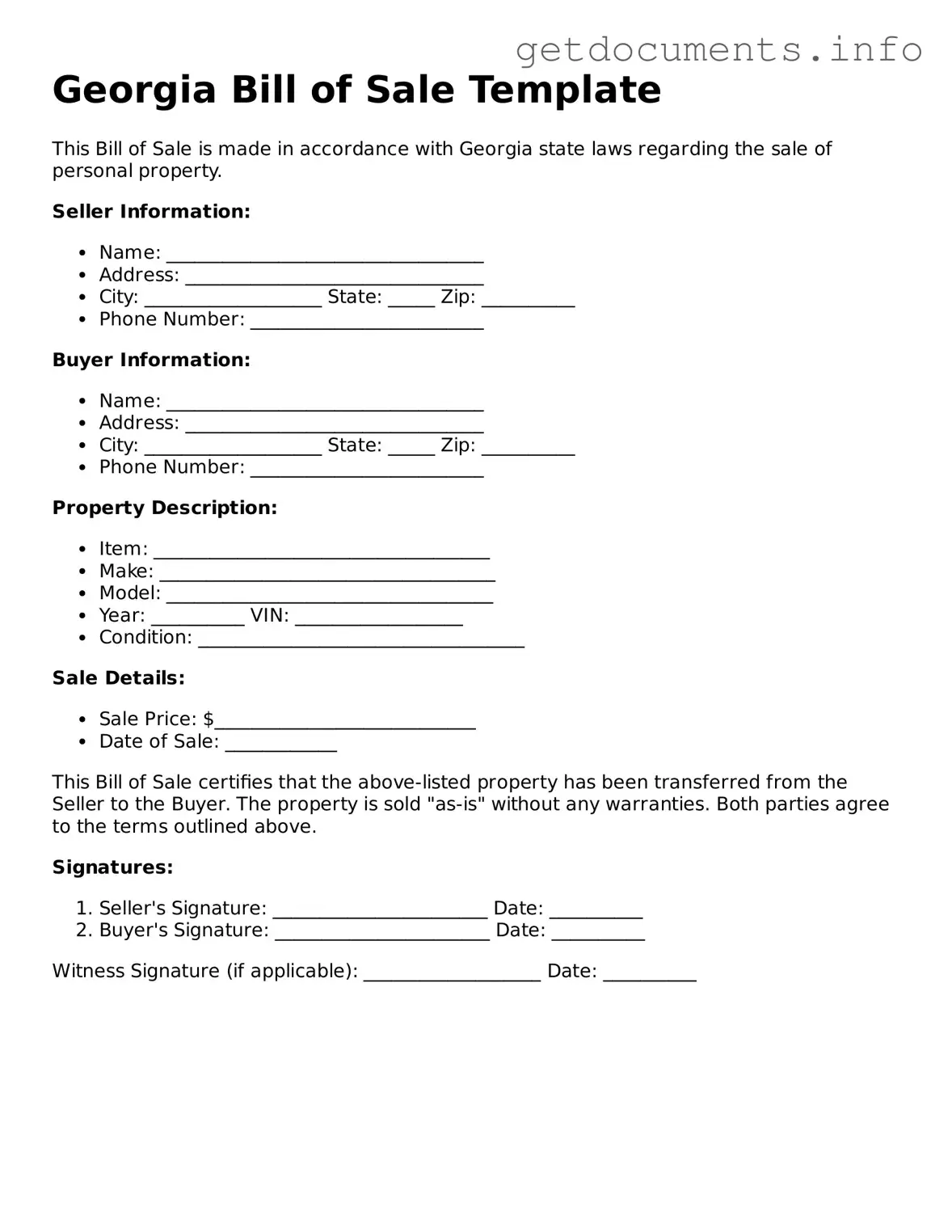Free Bill of Sale Template for Georgia
The Georgia Bill of Sale form is a legal document that records the transfer of ownership of personal property from one party to another. This form serves as proof of the transaction and provides essential details about the item being sold, the buyer, and the seller. To ensure a smooth transaction, it is important to fill out this form accurately.
Ready to complete your Bill of Sale? Click the button below to get started!
Access Bill of Sale Editor

Free Bill of Sale Template for Georgia
Access Bill of Sale Editor
Got places to be? Complete the form fast
Fill out Bill of Sale online and avoid printing or scanning.
Access Bill of Sale Editor
or
⇩ PDF File
